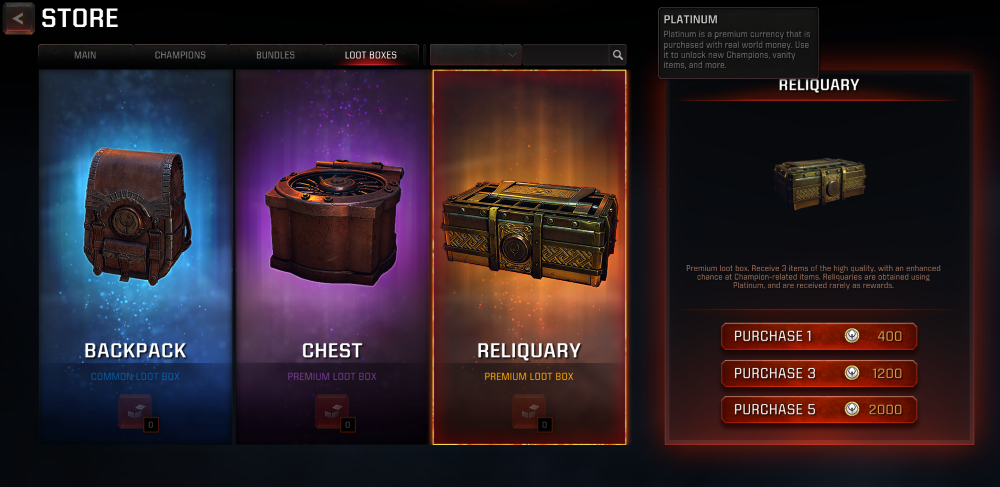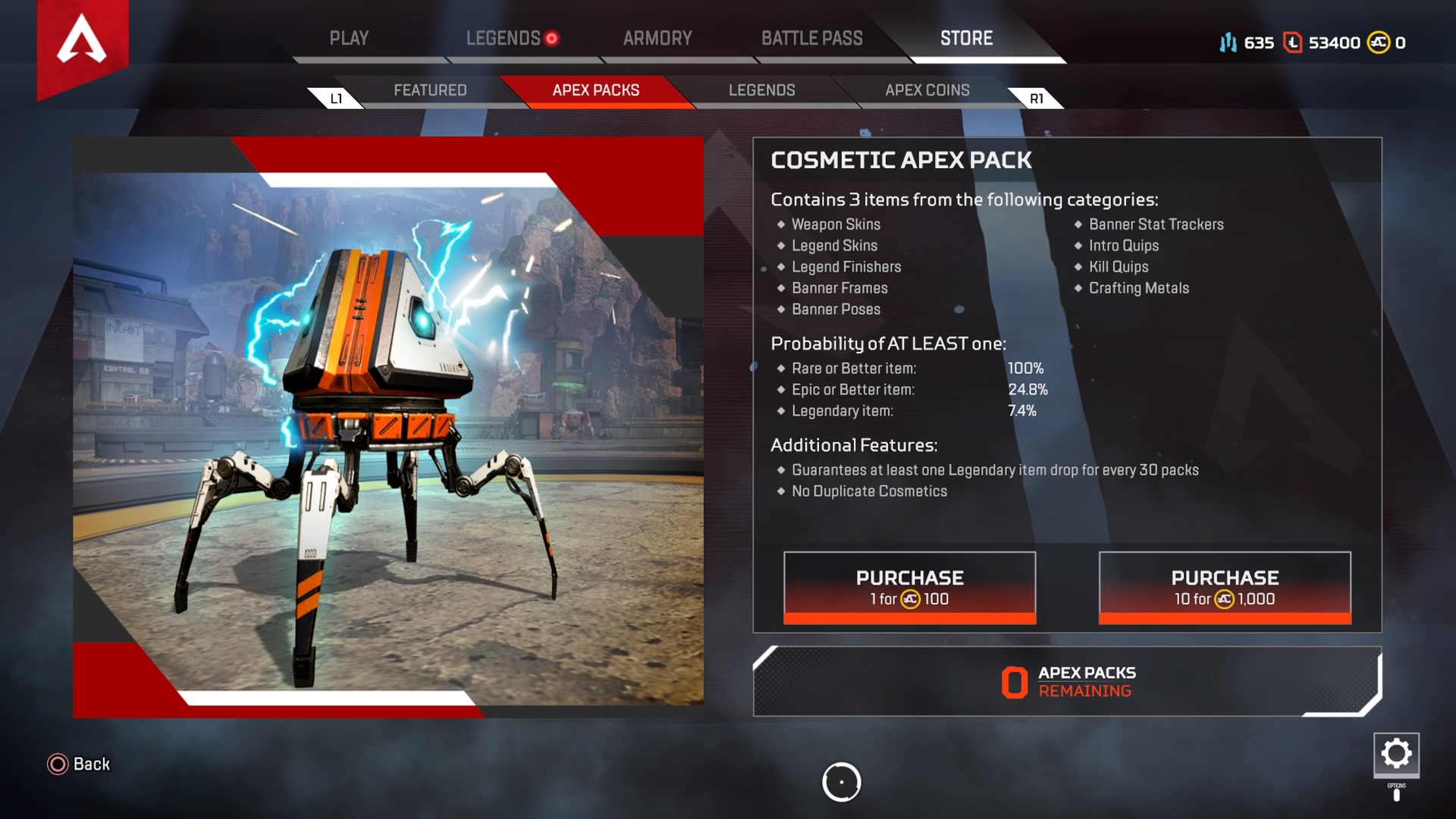According to GamesIndustry.biz, there are some in the gaming industry looking into new policies surrounding loot boxes.
Specifically, the Entertainment Software Association (ESA) said that Nintendo, Microsoft, and Sony will add what the companies are calling loot box probability rates in all future games and updates featuring crates.
The goal is to provide consumers with enough information to determine whether they will purchase a loot box. It’s an effort to make loot boxes less like gambling.
This announcement came from the ESA’s Chief Counsel of Tech Policy, Mike Warnecke, as part of the Federal Trade Commission’s (FTC) In the Game conference. In fact, the entire conference was designed to find a way of addressing the loot box problem in the games industry, and had been scheduled for some time.
Specifically, Warnecke said the policies adopted by the Big 3 and other publishers will “require the disclosure of the relative rarity or probabilities of obtaining randomized virtual items in games that are available on their platforms.”
Warnecke mentioned the Big 3 aren’t the only developers and publishers with a plan to tackle the issue. Others involved with the ESA are taking steps on their own at the publisher level, so consumers know what they’re getting when they buy a loot box.
Some of the publishers the ESA said are working on such measures include:
- Activision Blizzard
- Bandai-Namco
- Bethesda
- Bungie
- EA
- Take-Two
- Ubisoft
- Warner Bros.
- Wizard of the Coast
Those that still haven’t publicly committed to probability rates include Disney, Deep Silver, Square Enix, and Capcom, among others, according to the report.
As of now, the target date for the Big 3 and others to implement these more transparent loot box policies is the end of 2020.
If that practice sounds familiar, it’s because we’ve already seen it implemented recently in games like Apex Legends and with some of Tom Clancy’s The Division 2’s special events. EA and Ubisoft, respectively, added these updates to their already-existing loot box systems.
An Epic Games representative told GameSkinny in an email that the steps it has taken earlier this year were emblematic of the transparency the company strives to bring to all titles moving forward:
Earlier this year, the Fortnite Save the World team made a change that showed players every item that they would get in a paid llama before opening it.
Earlier this week, the team at Psyonix announced a similar change coming later this year to paid crates in Rocket League.
Going forward, we’re committed to the same transparency for player purchases in all Epic Games titles.
However, not all games that currently have loot boxes will receive these transparency measures.
Warnecke said Nintendo, Microsoft, and Sony will only be doing this for future games with loot boxes or updates revolving around loot boxes. Any existing games on their platforms that already have a loot box system reportedly won’t be covered under this new policy unless the developer adds it themselves.
The loot box controversy has been growing in significance over the years, with things coming to a head earlier this year. Among other things, after the FTC announced its In the Game conference, certain legislators made a bid for outlawing microtransactions entirely, including loot boxes and other in-game purchases.
However, it’s worth noting that under the new policies, items obtained would still be randomized, so there’s still an element of gambling to loot boxes regardless.








Published: Aug 7, 2019 02:13 pm